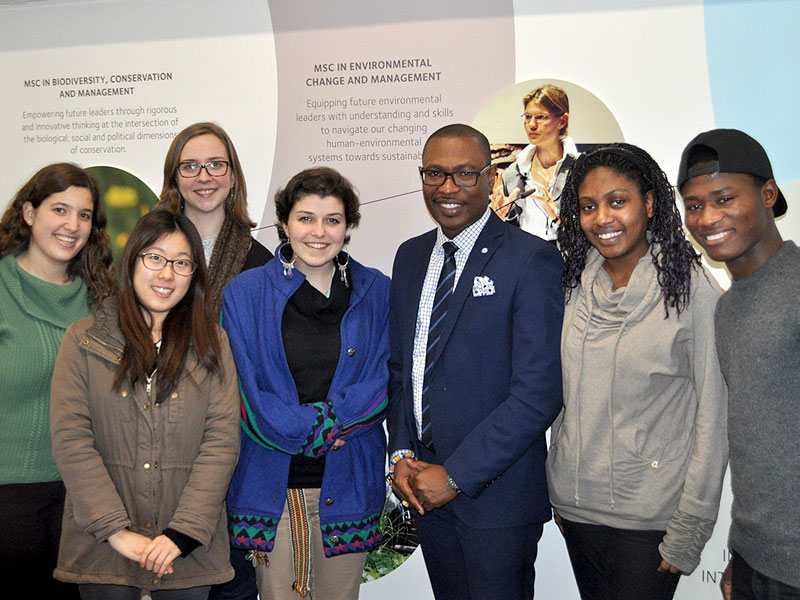For a quarter of a century, Oxford's Environmental Change Institute (ECI) has been at the forefront of cutting-edge interdisciplinary research, exploring sustainable solutions to the problems caused by our ever-changing environment, and promoting change for the better through partnerships and education.
From hosting globally pioneering conferences on climate change and food security, to leading the world's largest climate forecasting experiment, the institute's impact – on a local, national and global level – has been vast.
The role of benefactions
Research and innovation on this scale simply could not have been achieved without the generosity of donors. Founded entirely through benefactions, the ECI has gone on to receive further gifts of over £6 million, with every penny raised helping to drive new environmental research, support international graduate education and benefit early-career academics.
'When you draw ECI's family tree, you begin with Emeritus Professor in Geography, Andrew Goudie,' explains Professor Jim Hall, Director of the ECI. 'The next names – one thousand and more – are those of our benefactors. Today our researchers, students and alumni have grown intertwining branches across the world. The tree, however, stands because of those who had the inspiration and generosity to set it growing.'

Researching environmental change
From very early on, philanthropic support for individual academic posts arose as the primary means by which the institute could grow its research capacity. Donor-funded fellowships have enabled research teams to leverage additional investment through external research grants, and build their reputations as the world's very best.
Support from funder PowerGen (now known as E.ON UK), for example, resulted in the establishment of one of the leading European research teams in energy demand management. Led originally by Dr Brenda Boardman MBE, the team have influenced the UK energy research and policy agenda, directly effecting how people use energy in their everyday lives.
Defining the research agenda
Following this strategy, the ECI has grown in both size and capability, conducting research right across the globe, in collaboration with hundreds of partner organisations, and encompassing all major themes driving global environmental change. The institute now comprises more than 70 research staff, 30 doctoral students, and an MSc course of 25 students annually. It has a yearly turnover in excess of £5 million.
'Benefactions for research posts have given us the agility to define the research agenda before other funders have even recognised the issues,' says Professor Hall. Jackson Fellow Yadvinder Malhi is a perfect example of this, with initial support from the Frank Jackson Foundation leading to a research team and network with truly global impact in ecosystems and tropical forests. 'The financial leverage from that first gift has been immense,' he notes. 'A wonderful credit to the foundation's foresight.'

Educating the world leaders of tomorrow
One of the most important initiatives implemented by the institute during its lifetime has been the creation of its MSc in Environmental Change and Management. A world-leader in its field, the course trains graduate students from across the globe in all aspects of environmental change and management, preparing them to become confident and astute decision-makers.
Established using donations made by founding benefactors and alumni, the MSc quickly became self-funding, and now counts nearly 700 individuals from 80 different countries as graduates. Alumni have gone on to occupy increasingly influential positions, from the United Nations and the World Bank to governments, businesses and academia.

Widening the international spread
Many of the ECI's alumni, including some who undertook DPhil research at the institute, will have received additional financial support to enable their continued study at Oxford.
'Scholarships have played a unique role in widening the international spread of our education programmes,' says Professor Hall. 'In recent years students have, for the first time, been able to come from Indonesia, Rwanda and Zimbabwe. This national and cultural diversity is one of the outstanding features most valued by all our students. It is also very encouraging that our graduates – now as young alumni – have supported some of these new students.'
A legacy for the future
The ECI has achieved so much over the past 25 years. By giving its leaders the power to grasp opportunities at short notice, leverage further funding for their work, and support students from countries who may not normally apply to Oxford, philanthropy has helped the institute to become a crucial contributor to international environmental research and teaching.